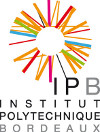|
Evènement pour le groupe Séminaire du LaBRI
| Date | 2012-12-06 16:00-17:00 |
| Titre | [Sem-LaBRI] Promoting systems biology research through intelligent information mining of omic datasets |
| Résumé | Exponentially thriving biological data sets present a challenge and an opportunity for researchers to contribute to the understanding of the genetic basis of phenotypes. Due to breakthroughs in microarray and recently in sequencing technologies, it is more than ever possible, to simultaneously monitor the expressions of an unprecedented size of molecular actors, thus providing the ground and the promise to biomedical researchers for a successful, clinical, system-wide interpretation of disease related tissue data that can be analyzed in this way. This technology could be a landmark in personalized medicine, paving the way for innovative methods of data handling and storage for clinical purposes in electronic health records. Merging experimental data with disparate preexisting data (literature, provenance data, clinical records, etc.) in these analytic pipelines strengthens the diagnostic value of the disease signatures derived, in order to be considered robust, early biomarkers of disease. High dimensionality and biological variability is ubiquitously present. The efficient manipulation of this complexity, through the application or development, of innovative high-performance computing approaches, represents a critical determinant.
The presentation will showcase the integration of various software products, in a unified translational workflow, able to cope with versatile, high-volume exploratory tasks, and at the same time provide a reliable systemic interpretation for the biological mechanism studied. In this way, a powerful translational backbone is proposed which connects the wet-lab part with the semantic relevant information for the biological problem interrogated, as rescued in molecular databases, controlled ontological vocabularies or the literature. This encompasses, signal-quality estimators for feature evaluation, robust, resampling-based statistical measures at either the single (probe) or group (pathways, expression-based molecular sets) level, graph theoretic criteria and exploitation of literature-gleaned information. Altogether this represents an efficient and innovative, either in terms of speed of analysis, and practical biological value, approach, as it forms a composite framework that yields results combining ideally both individual as well as group quality measures deriving an insightful comprehension of the problem studied. |
| Lieu | salle 178 |
| Orateur | Aristotelis Chatziioannou |
| Url | Institute of Biology, Medicinal Chemistry & Biotechnology, NHRF, Athens, Greece |
Aucun document lié à cet événement. RetourRetour à l'index
| |


